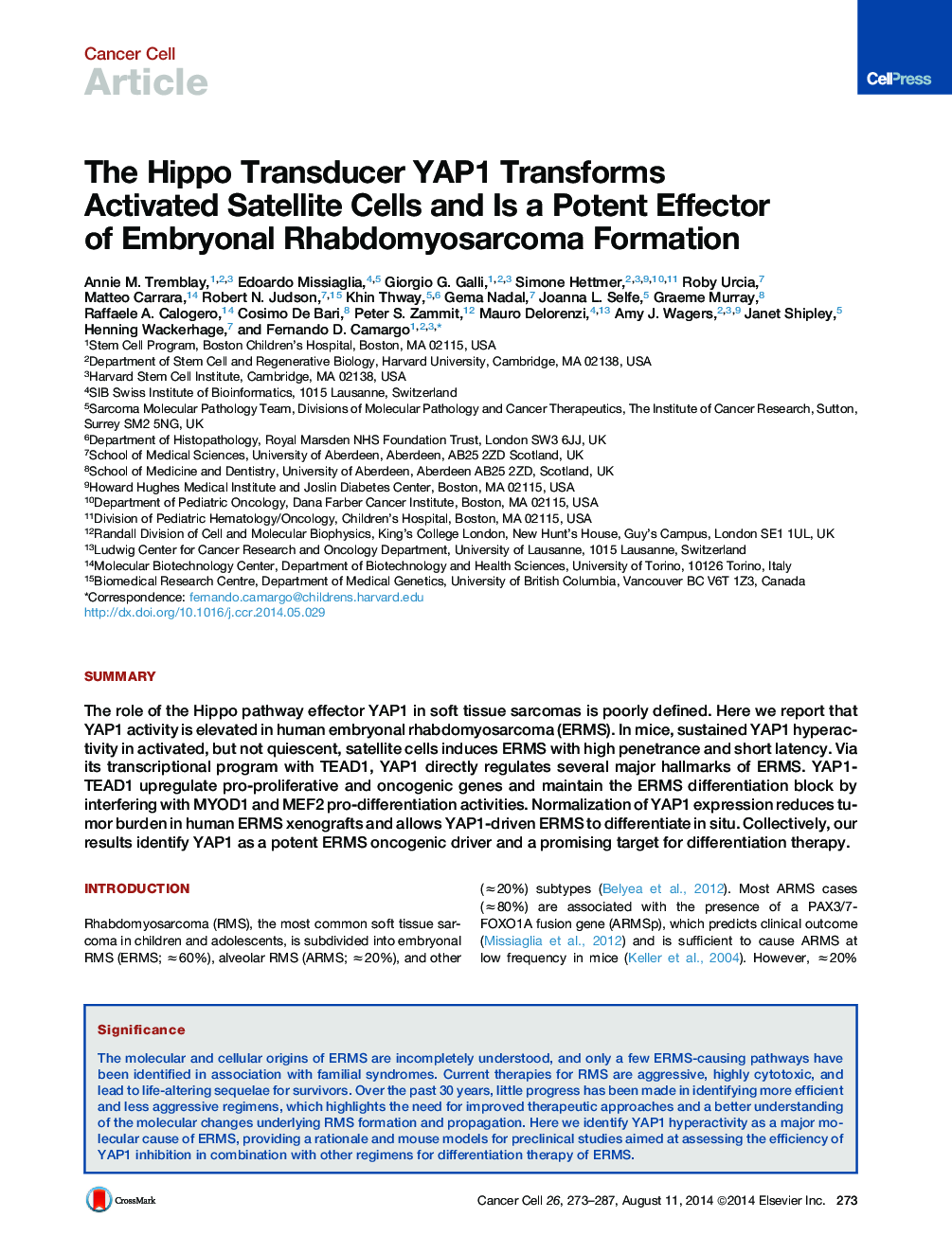| Article ID | Journal | Published Year | Pages | File Type |
|---|---|---|---|---|
| 2107096 | Cancer Cell | 2014 | 15 Pages |
•YAP1-driven ERMS can originate in activated but not quiescent satellite cells•YAP1 locks the ERMS myoblast phenotype by globally reducing MYOD1 and MEF2 activity•YAP1-ERMS activity signature classifies ERMS cases according to stage and severity•YAP1 inhibition is a promising strategy for differentiation therapy of ERMS
SummaryThe role of the Hippo pathway effector YAP1 in soft tissue sarcomas is poorly defined. Here we report that YAP1 activity is elevated in human embryonal rhabdomyosarcoma (ERMS). In mice, sustained YAP1 hyperactivity in activated, but not quiescent, satellite cells induces ERMS with high penetrance and short latency. Via its transcriptional program with TEAD1, YAP1 directly regulates several major hallmarks of ERMS. YAP1-TEAD1 upregulate pro-proliferative and oncogenic genes and maintain the ERMS differentiation block by interfering with MYOD1 and MEF2 pro-differentiation activities. Normalization of YAP1 expression reduces tumor burden in human ERMS xenografts and allows YAP1-driven ERMS to differentiate in situ. Collectively, our results identify YAP1 as a potent ERMS oncogenic driver and a promising target for differentiation therapy.
